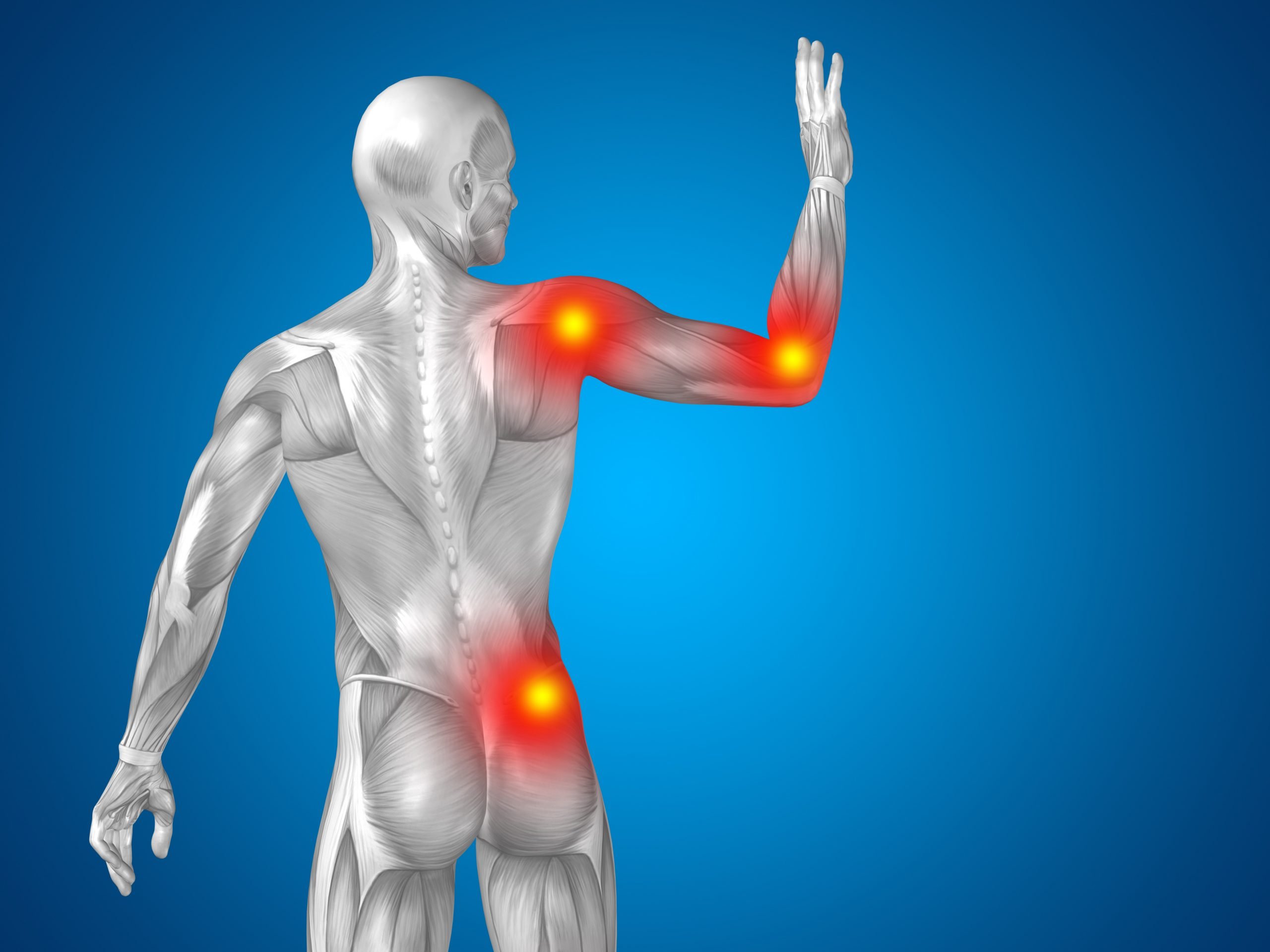Most of us associate inflammation with some kind of bodily injury or arthritis. But did you know that inflammation can also signal other health issues? If your body has excess inflammation, it will signal you in different ways, trying to notify you that something is amiss in your system.
While there may be times when you choose to tell your doctor about some of these symptoms, not all inflammation is harmful. Just like there are two kinds of cholesterol, there are two types of inflammation – acute and chronic.
Acute inflammation helps us heal. If you twist an ankle or sprain your wrist, the area becomes swollen. It may be red and hot to the touch. Those symptoms are your body’s response to injury and begin the healing process, not the least of which is signaling you to stay off the ankle or minimize the use of the wrist. The symptoms are temporary and will dissipate as the injury heals.
Chronic inflammation, however, is serious. If it is left untreated, it can start a chain of symptoms that adversely affect your health.
9 causes of chronic inflammation
Lots of factors contribute to chronic inflammation. Your genetic predisposition, diet, sleep patterns, and other habits are all possibilities. For example, unknown food allergies can cause inflammation in your intestine. But without testing, how can you tell if you have too much inflammation in your body or if everything is just fine?

Here are nine symptoms that may signal you are suffering from chronic inflammation.
You’re tired all the time
Too little or too much sleep can create inflammation. If you are sleeping less than seven hours or more than nine, the cells in your body may respond to these irregular sleep patterns as if they are an illness.
So, even if you think you’re getting enough sleep, if you feel exhausted more often than not, it may be time to see your doctor. If there is an underlying condition, it can be treated.
You have aches and pains
Experiencing pain regularly that is not attributable to an injury is an indicator of a lot of inflammation. If you notice pain at the end of your range of motion, you could have too much inflammation. It could also be a signal that you have developed arthritis. Rather than put it down to age, or dismiss it as no big deal, check it out with your doctor. If you don’t need to cope with it, you shouldn’t.

You’re experiencing digestive issues
Ongoing symptoms like diarrhea or gassiness could be signs of chronic inflammation, especially in the gastrointestinal tract. Among other things, this kind of inflammation can cause bloating and cramping.
It is doubly important not to ignore these symptoms if they happen more often than not because they could signal a food allergy, irritable bowel syndrome (IBS), Crohn’s disease, or other issues that create inflammation that area.
Let your doctor know. You may have to undergo a series of tests before your doctor can give you a diagnosis, but it is worth the effort.
Your lymph nodes swell
Lymph nodes are located in your neck, under your armpits, and near the groin. Sometimes they will swell, serving as a warning that something may be off with your immune system. For example, if you have a cold or sore throat, you may notice swelling in your neck. That’s a signal that your immune system recognizes something is wrong, and it’s working toward getting rid of a bacterial or viral infection. Once your body fights off the infection, and you are well once again, the swelling dissipates.
But if your lymph nodes are always swollen, or hurt, let your doctor know. There could be a more serious issue in play.
Your nose is stuffy
The most common way the body lets you know something is wrong is through inflamed nasal cavities. At first, it may seem as if you have a stuffy nose and you assume it is seasonal allergies or a simple cold. But, since inflammation is the body’s way of fighting off foreign substances and protecting itself, a stuffy nose could be a sign of something else.
Your skin breaks out
Internal inflammation can sometimes reveal itself externally. If you develop a rash, acne, dry skin, or suffer from eczema, you may have some internal inflammation. If any of those conditions are chronic, see your doctor.

You’re struggling with brain fog
As surprising as it is, inflammation can also affect you mentally. You may find you forget more frequently than usual. Or have trouble focusing. Sometimes it is severe where you forget what you’re saying in the middle of saying it. Or it could be subtle. You may notice something is off, or not quite right, but can’t put your finger on.
Many times once you treat chronic inflammation, mental clarity will reassert itself. You can help by making a few simple lifestyle changes. Making better food choices might be the most straightforward and most inexpensive change to make. Fast food, processed food, convenience, and restaurant foods can all lead to increased inflammation levels. If you eat a lot of these foods and also don’t include fruits and vegetables in your diet, nutrient deficiencies can result, which can lead to increased inflammation. Start by eliminating one fast-food or restaurant meal a week; or by eating a piece of fruit daily. Then improve on that each week. A gradual, almost dull approach to making those changes will improve your energy and overall health and could very well reduce other inflammation symptoms.
You have heartburn
In addition to digestive issues, heartburn is another symptom of too much inflammation in the body. Studies have shown that gastroesophageal reflux disease, also known as gastric reflux, may be more related to inflammation than to stomach acids traveling up the esophagus.
According to a study published by the Journal of the American Medical Association (JAMA), it could be the body’s natural inflammatory response that causes pain and damage to the esophagus. By knowing that, treatment may be improved.

You keep getting headaches
No one knows the exact causes of migraines and ongoing headaches, but they could be affected by neurogenic inflammation, which is a type of inflammation in the brain. If you experience a recent onset of headaches or migraines or notice changes from previous headaches or migraines, you may benefit from a neurological exam. That can rule out any organic reasons for the symptoms, including inflammation.
Again, small changes may make a difference. Stress, tobacco, and alcohol use can all stimulate the body’s inflammatory response and lead to migraines and severe or frequent headaches. Relaxation techniques and more regular activity, such as walking around the block, can also decrease chronic stress, which can reduce chronic inflammation.
If you notice any of these nine symptoms, tell your doctor. If you can determine they are due to chronic inflammation, there are ways to treat the causes and get you back to feeling like yourself again.

